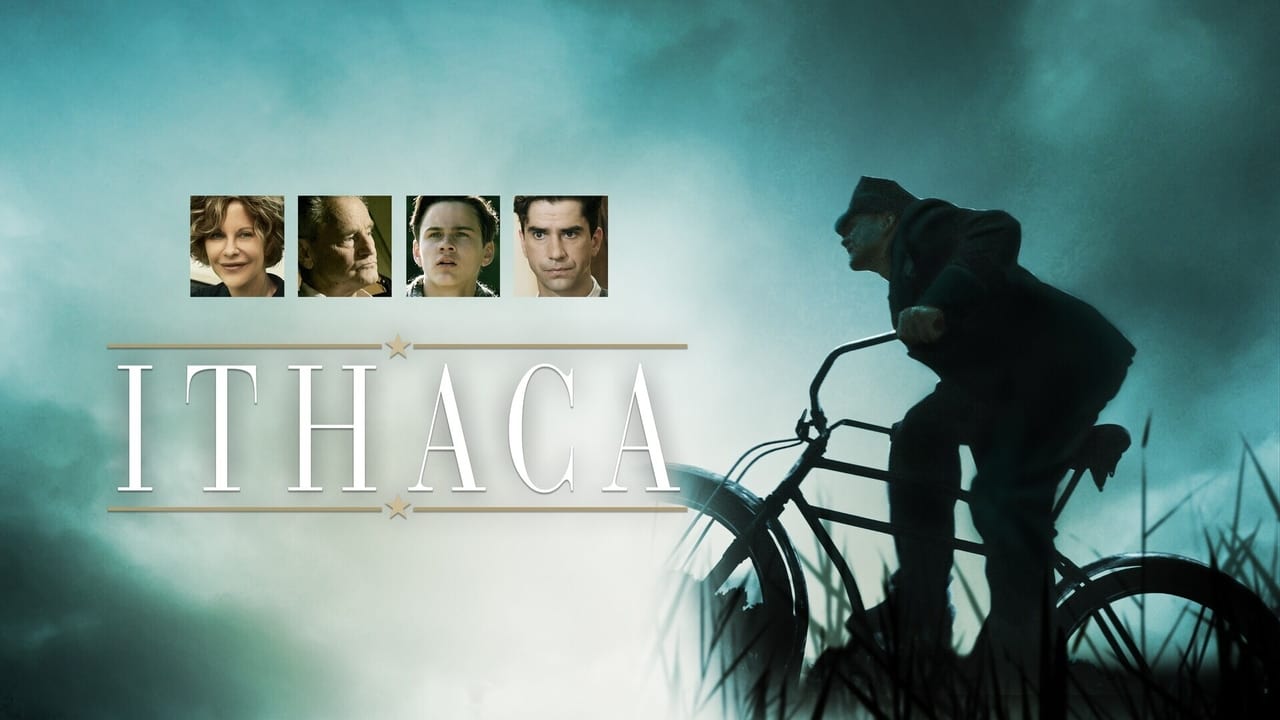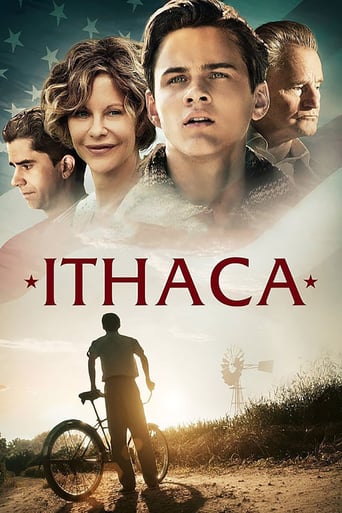



Most undeservingly overhyped movie of all time??
A bit overrated, but still an amazing film
It's entirely possible that sending the audience out feeling lousy was intentional
View MoreThis is a must-see and one of the best documentaries - and films - of this year.
View MoreBased on the William Saroyan novel "The Human Comedy," "Ithaca" attempts to put a human face on the tragedy of war. The main character is named Homer, which is derived from the bard who sang the praises of the war heroes who fell at Troy. In this twentieth-century adaptation, Homer is a telegram delivery boy who shows up on the doorsteps of the mothers to inform them of their sons' deaths in World War II.The setting is Ithaca, New York, which bears no resemblance to the ancient Greece citadel that was home to Ulysses (Odysseus). The filmmakers' concept has been to create a Norman Rockwell-like atmosphere for the small town.The best performance in the film is that of Alex Neustaedter, who races around town to deliver the tragic news of the war dead. Unfortunately, the film never fleshed out the characters, so that the audience may empathize them. The main problem was the over-emphasis on the narrator's voice at the expense of the words of the characters themselves.While the scenery and location filming (in Virginia, not New York) was beautiful, "Ithaca" never confronted the contradictions of World War II as "the good war," yet one that left a vacuum in lives that could never be filled.
View MoreFirst, this was a terribly directed and cast remake of "A Human Comedy" which did not need a remake unless it was going to be impeccable. Too many things wrong, lots and lots. This was wrong from the outset, the Telegraph office was incorrect as there were not any metal door/ window framing on buildings of that nature in the 1940's. And it just goes down hill from there. Sad about the direction. Too bad about the casting. It was a little like scratching fingernails on a chalkboard. I could not finish this movie. So save your money and time.
View MoreThis film tells the story of a fourteen year old boy, who takes up the job as a messenger to deliver telegraphs back in the dark times of the second world war.The book might have been touching, but this film unfortunately does not work. The story does not seen to go anywhere. It doesn't develop the characters, and viewers don't understand why any of the characters are at the point that they are at. Why does the boy need to take up a job? Why does the older guy drink so much? What about the other messenger? The lack of background information makes me feel distant from the characters. It takes forty minutes of screen time to deliver the second telegraph. That's way too long for a film about a boy delivering telegraphs. The film could have explored more on how the sad telegraphs affected him, so there's wasted opportunity. I watched the film for Tom Hanks, and I don't even recall him having said a word!
View MoreGreetings again from the darkness. The source material is the 1943 novel "The Human Comedy" from Pulitzer Prize winning writer William Saroyan; and it's the directorial debut of Meg Ryan, the one-time 'America's Sweetheart' who reunites with her Sleepless in Seattle co-star Tom Hanks (in a ghostly cameo). Due to these juicy ingredients, we can be excused if our expectations are a bit high.As a viewer, it's easy to relate to the emotions of young Homer McCauley (Alex Neustaedter) as his messenger job expedites the disillusionment that often accompanies adulthood. While Homer becomes more disenchanted the more he learns, we feel let down with each successive sequence. The adapted screenplay from Eric Jendresen never picks a direction, and instead teases us with numerous pieces from the novel with little follow through on any.Homer's dad (a very brief Tom Hanks apparition) has recently passed, and with his older brother Marcus (Jack Quaid, son of Meg Ryan and Dennis Quaid) off at war, Homer takes it upon himself to secure a job to help support his saintly and melancholy mother (Meg Ryan), his older sister Bess (Christine Nelson) and his little brother Ulysses (an energetic Spencer Howell). He pledges to be the best bicycle messenger ever when hired at the local telegraph company run by Tom Spangler (Hamish Linklater) and old-timer (grumpy and frequently inebriated) Willie (Sam Shepard).Being that it's war time, some of the telegraphs Homer must deliver are the worst possible news for the parents on the receiving end. As the film progresses, we see the light slowly go out of Homer's once bright eyes. The accelerated coming-of-age aspect is at its best when his father-figure Willie brusquely tells him "You are 14 years old and you're a man! I don't know who made you that way." It's the most poignant moment of the film and the closest we get to a real theme.The letters Homer receives from older brother Marcus contribute to his understanding of the world and the reading of the letters serves the purpose of story narration. The film is nostalgic and idealistic, but so unfocused that we are never able to fully connect with any of the characters. We are caught off guard when Homer proclaims his mother as the nicest person ever, although she has offered even less guidance than Forrest Gump's mom. Ithaca, Ulysses, and Homer we can't miss the mythology ties, as well as the importance of home, but it always feels like something is missing.In 1943, six time Oscar nominee Clarence Brown made a movie based on this same novel, and the cast included Mickey Rooney, Frank Morgan, Donna Reid and Van Johnson. In this new version, John Mellencamp provides the musical score, and Ms. Ryan has stated that the novel helped her work through a difficult time in her personal life. She's likely to get more opportunities to direct; her first outing is easy enough to watch, but just as easy to forget.
View More